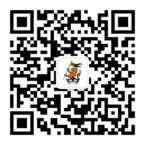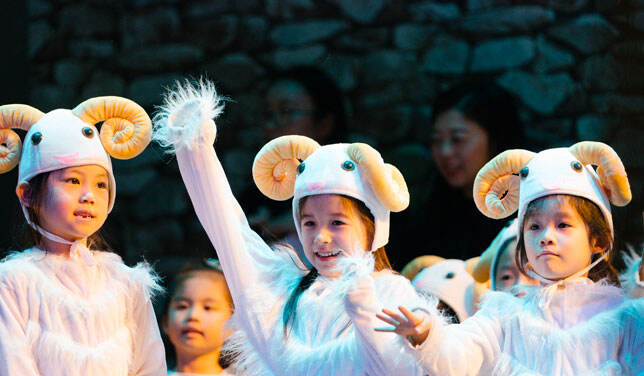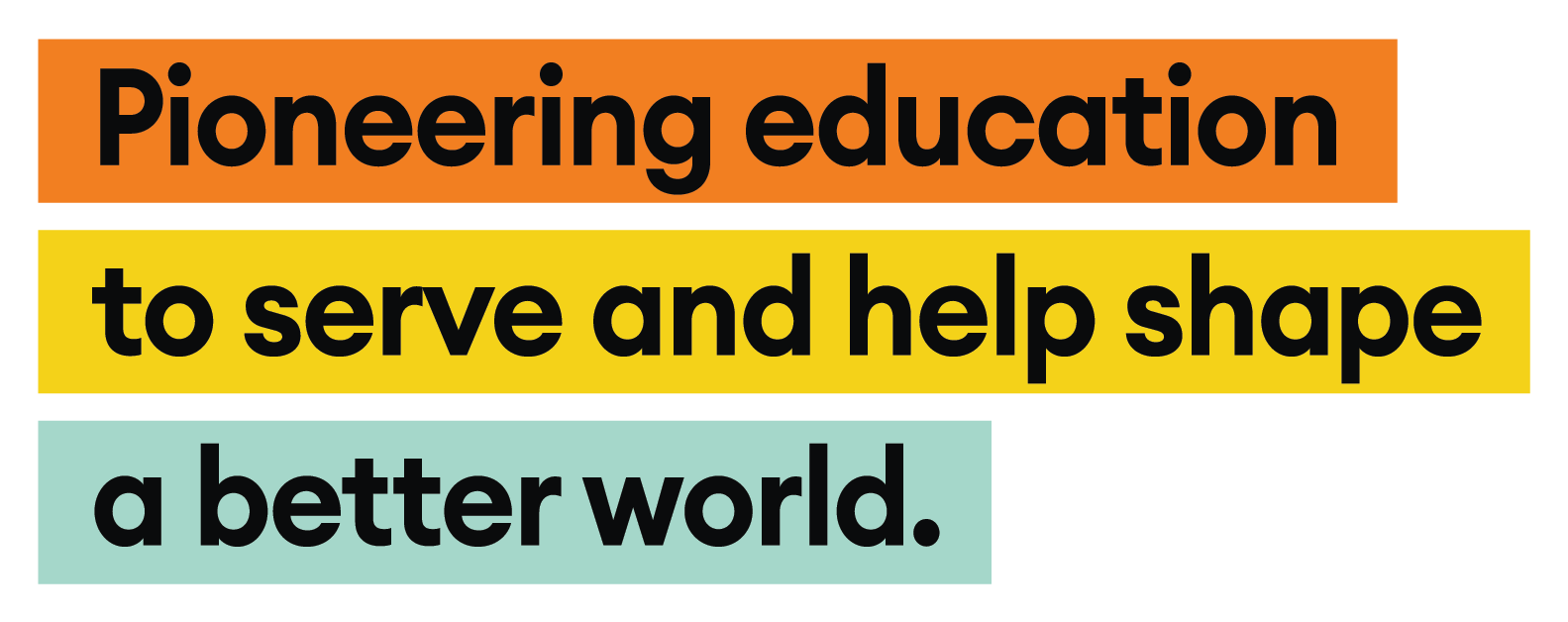Great Reads from Wellington College Education (China)'s School Leaders

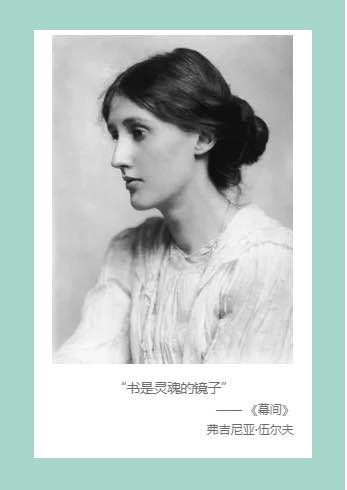
The 23rd of April is a symbolic date in the field of world literature.
In 1923, a Spanish bookseller initiated the first ever book celebration to pay tribute to the death of Miguel de Cervantes, the author of the now world-famous Don Quixote. Years later it was discovered that the 23rd of April coincides with the birth or death anniversaries of many of the world’s most renowned writers: Miguel de Cervantes, William Shakespeare, William Wordsworth and Chinese poet Wei Yuan are but a few of the writers connected to this date.
From then on people began commemorating the 23rd of April as a day of remembrance for these writers and the contributions they made to world literature. In 1995 the United Nations Educational, Scientific and Cultural Organization designated the 23rd of April as World Book Day to promote the joy of reading. Every year, publishers, booksellers, libraries, writers, educators and book lovers alike celebrate reading as a way to connect with the literature legacy of the past and pay tribute to writers that have inspired and entertained us with their words for so many years.
“In these turbulent times, books embody the diversity of human ingenuity, giving shape to the wealth of human experience, expressing the search for meaning and expression we all share, that drive all societies forward.“
— Ms. Audrey Azoulay,
Director-General of UNESCO
It is an undeniable fact that reading yields immense benefits. Because of this, Wellington College Education (China) places great importance on cultivating reading-related interests and habits among its pupils. Our schools organise reading activities regularly, and in previous years we have celebrated World Book Day by hosting various activities such as book fairs, author’s talks and workshops as well as dress-up events for pupils.
While our pupils are learning from home we continue to promote the joy of reading as often as possible. Librarians from each of our schools have designed reading activities for pupils from all grades, and the availability of an E-library has allowed pupils to easily access electronic copies of our library books from home. In addition to these special reading activities, schools under Wellington College Education (China) have always encouraged our pupils to develop better reading habits and skills as a fundamental component of the curriculum.
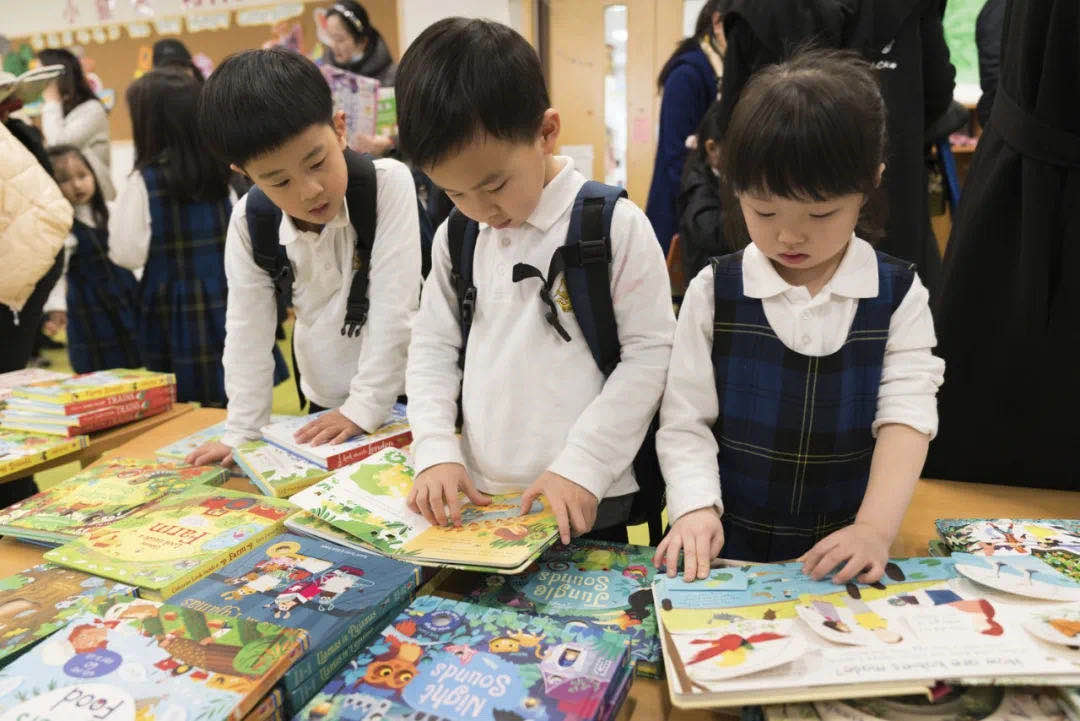
Wellington College Education (China) considers further improving teachers’ reading skills and empowering Wellington parents with practical instructions for them to become lifelong learners just as important as helping pupils maintain a lasting reading habit. We believe this enables the Wellington community to create a positive learning environment for pupils at home that complements their at-school experiences.
We invited six school leaders from our Tianjin, Shanghai and Hangzhou schools to share a few of their favourite books with us. We hope their recommendations will help our readers wind down a little at the end of the day, think deeply about our world and gain valuable wisdom.
Let’s slow down with books and be better teachers and parents together!
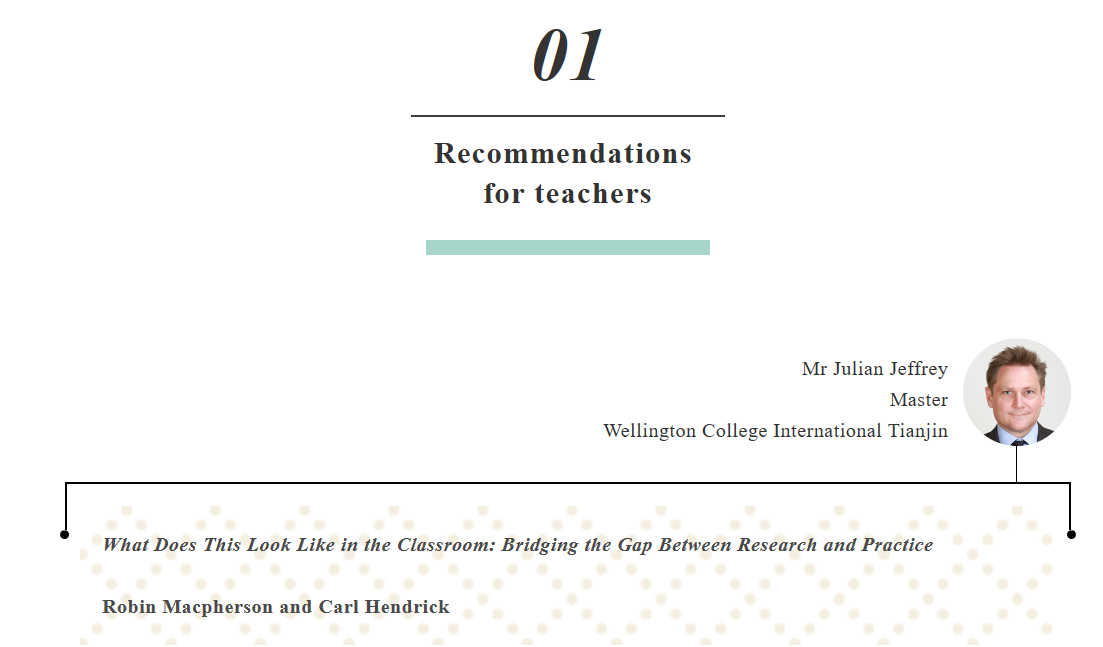
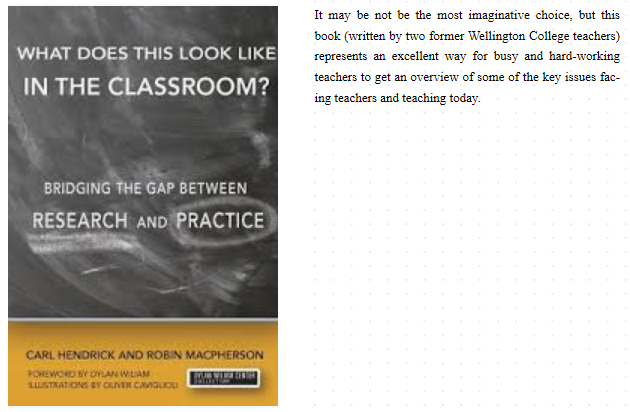
The authors pose the sort of everyday question that colleagues often have (on assessment and marking, or independent learning, for example), and then ask leading educationalists and researchers to answer them in succinct and accessible ways. In this way, the content is focused, relevant and clear - ideal for a teacher looking to expand his/her understanding of complex topics and as an introduction to deeper reading and research.
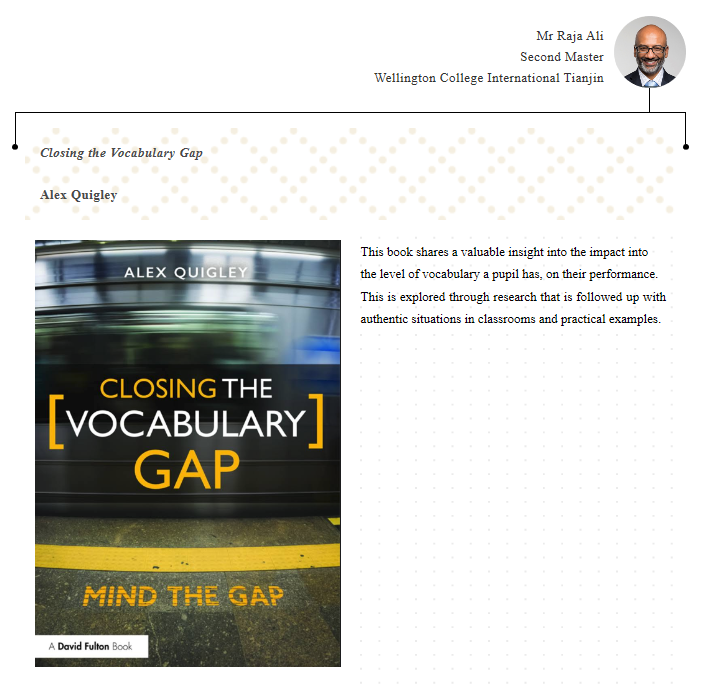
It is not simply a book for international schools or with those with a significant proportion of second language learners, but is relevant for all schools and all pupils.
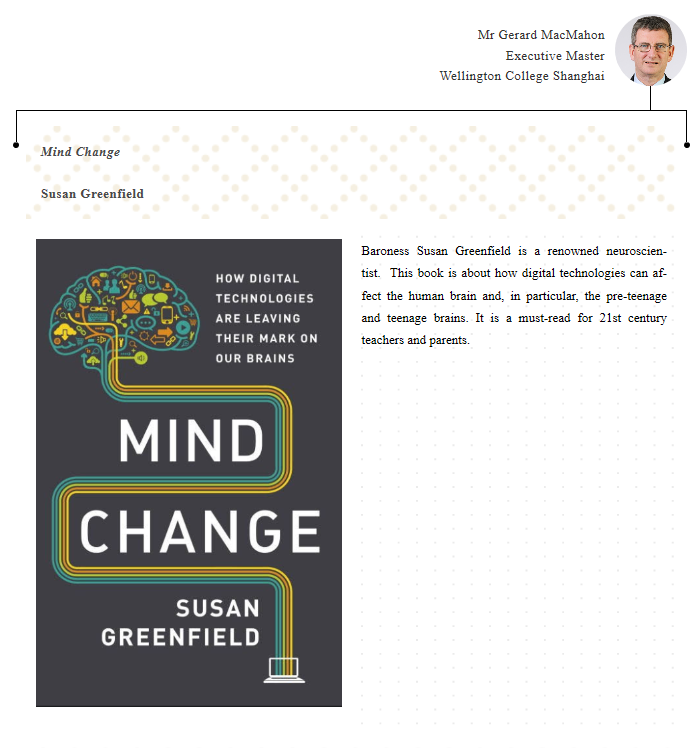
It also gives strong neurological scientific support for Wellington and Hiba’s focus on encouraging pupils to engage in art, sport, culture and play as well as their academic studies. It has gained particular relevance since our extended experience of e-learning this year.
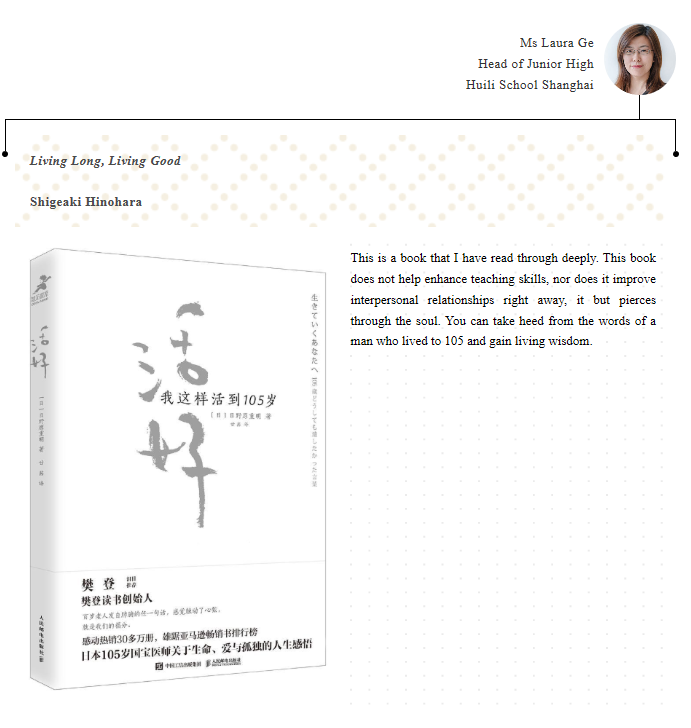
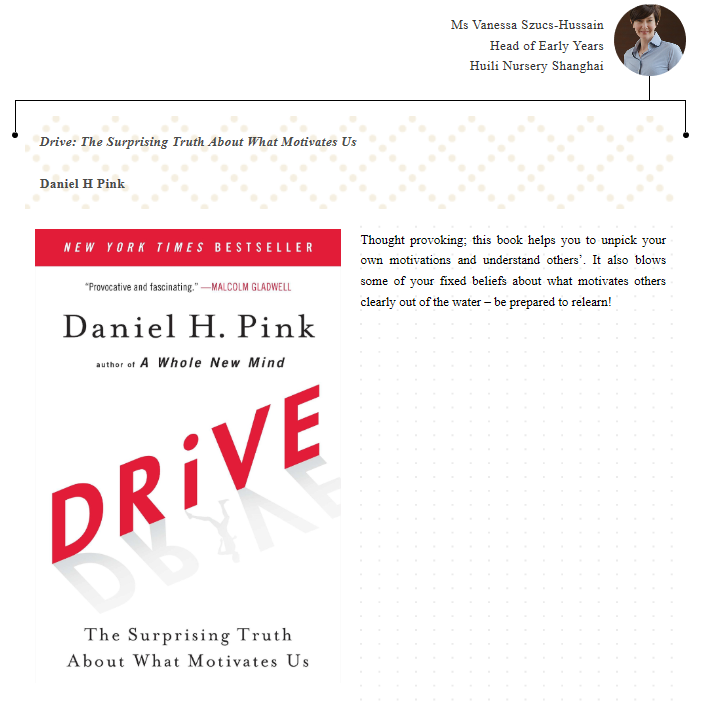
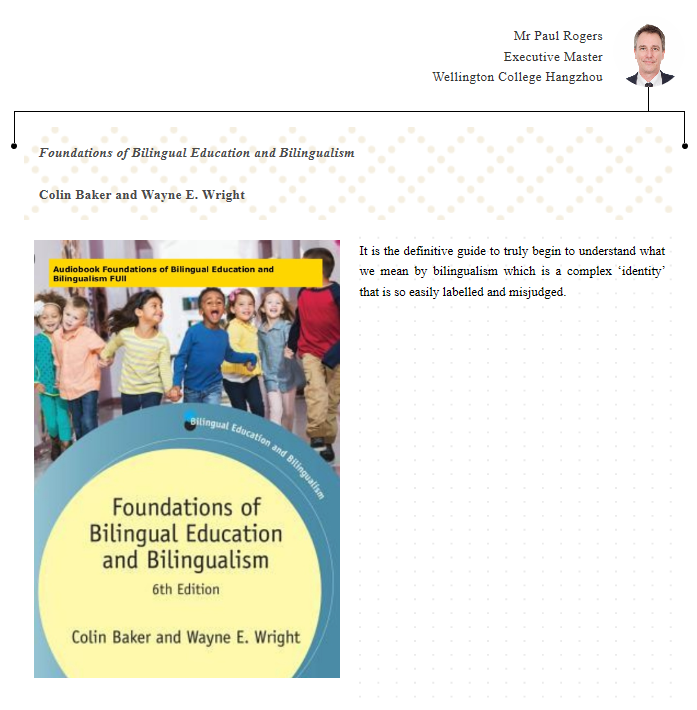
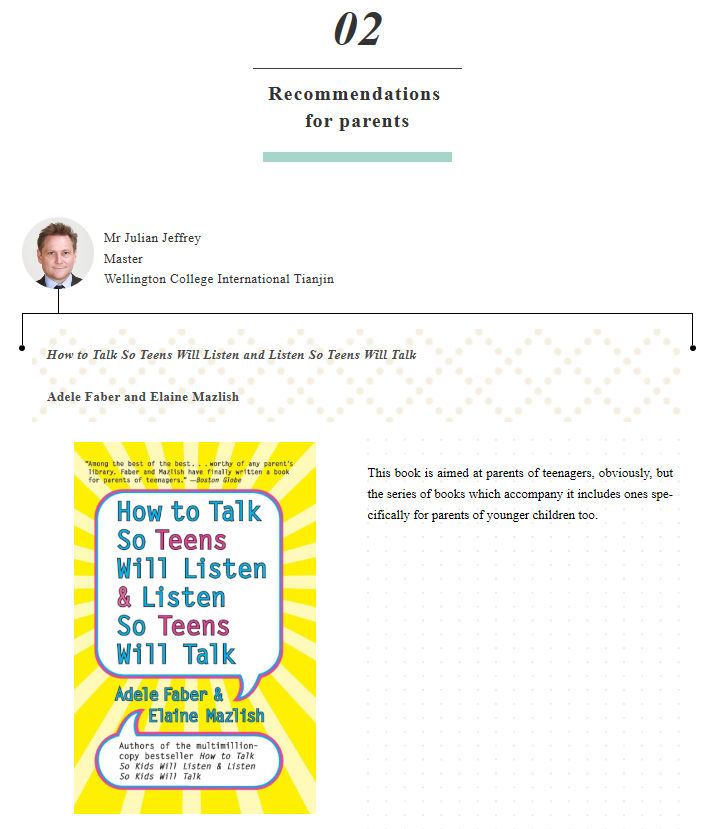
Getting teenagers to talk about their concerns and their lives is notoriously awkward, and parents often avoid such 'difficult' conversations for fear of damaging their relationships with their children.
This book, also available in a Chinese translation edition, suggests strategies for parents (and teachers) to help them understand their child better and to put in place processes which allow them to develop greater emotional connections. The style is informal and does not linger too long on any particular area, instead encouraging parents to develop handy ways of communicating more effectively.
It is a good book to stimulate discussion between parents too; sharing experiences (and solutions) is a key part of building a strong parent community at Wellington.
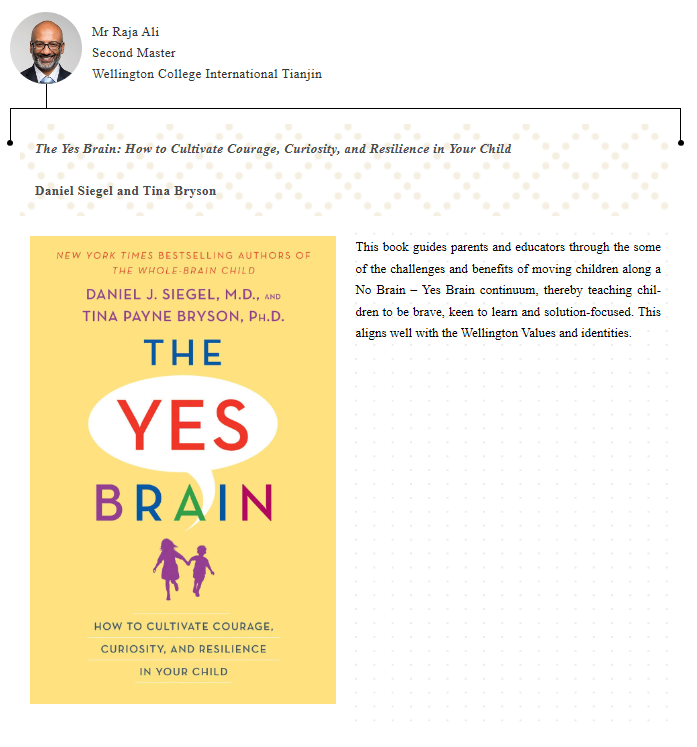
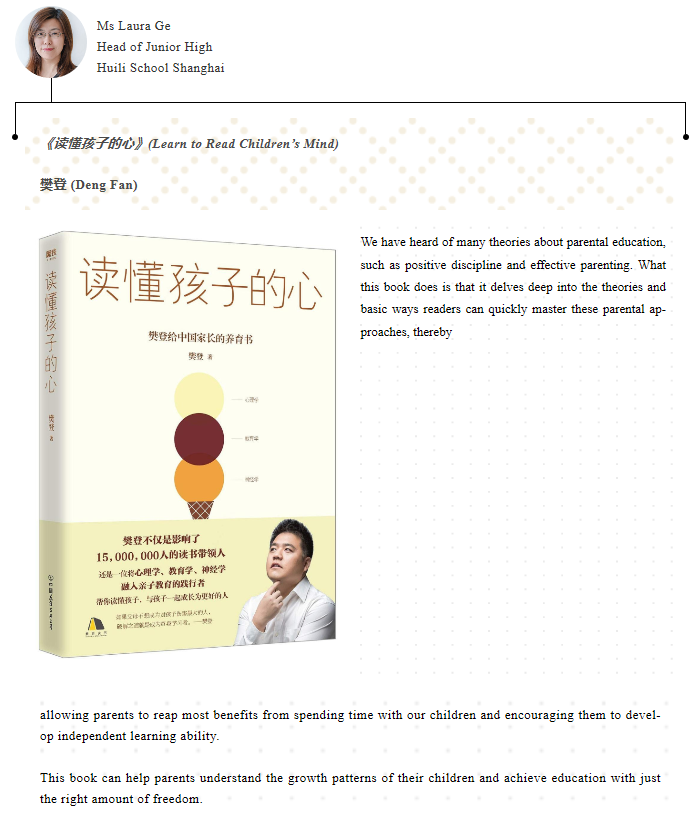
allowing parents to reap most benefits from spending time with our children and encouraging them to develop independent learning ability.
This book can help parents understand the growth patterns of their children and achieve education with just the right amount of freedom.
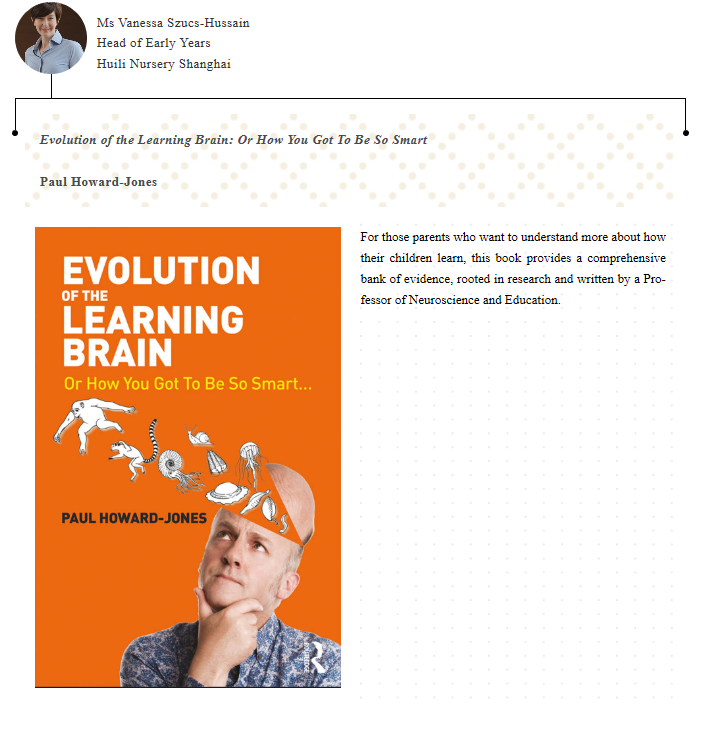
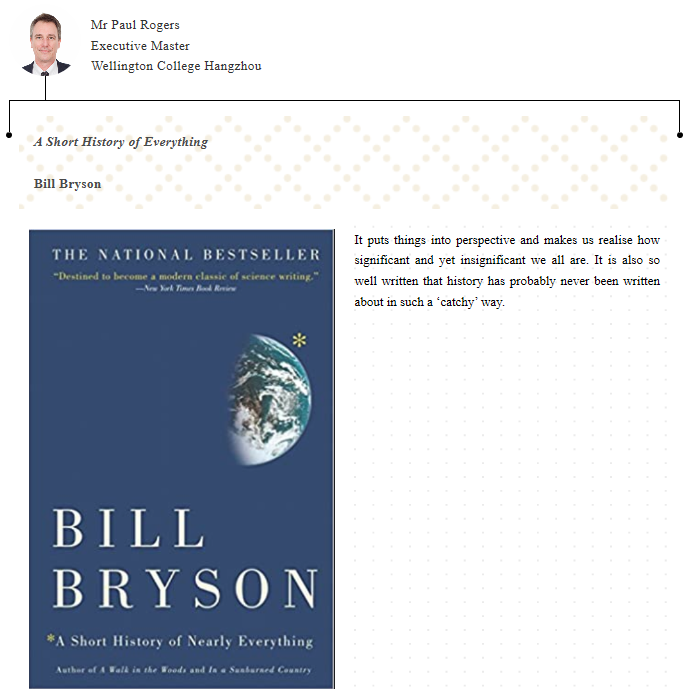
We hope that these recommendations might inspire teachers and parents to further expand their knowledge base. As noted by Hiba Academy Shanghai's Head of Junior High, Ms Ge, reading a book may not yield immediate benefits, but it enables us to ‘see our soul’ more clearly. Reading helps us understand more about ourselves and the world around us – a sentiment that echoes what Virginia Woolf advocated for during her time.
Wellington College Education (China) is a multicultural community made up of many interesting individuals. Reading takes on an essential role in the Wellington community because – as members of this diverse family – Wellingtonians do not only ‘read’ books, but they learn to ‘read’ the souls of people and grow a sense of understanding about different cultures. This cross-cultural ‘reading’ ability is crucial for each member of the Wellington family – pupils, teachers and parents – to further excel in all areas of education.
As Ms Joy Qiao, the founder of Wellington College Education (China) once said, “In the 21st century, when the East is meeting the West, this competency holds the key to a world with more open-mindedness, better understanding and deeper integration.”




